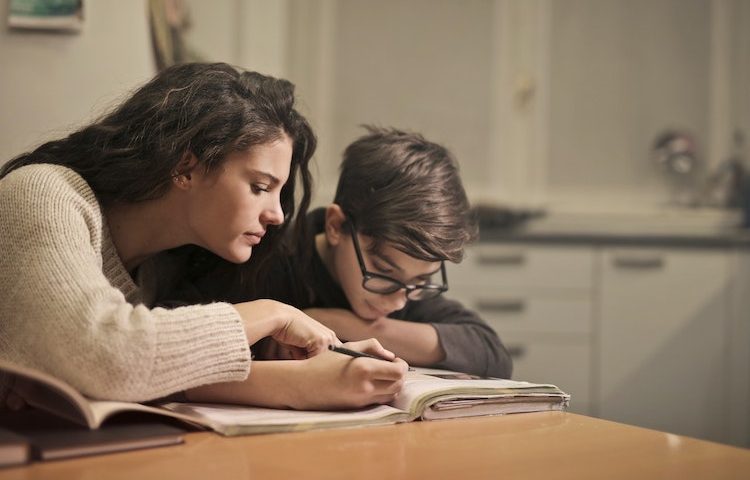Your Guide to Learning Disabilities

The Different Areas of Chemistry
October 7, 2020
How to Pay for College
November 10, 2020A learning disability – or learning difference – is an umbrella term for a collection of different educational learning issues your child may have. A learning disability isn’t an indication of a lack of intelligence or motivation, but rather the result of a neurological issue. In essence, learning disabilities impede a student’s ability to collect, process, and recall information. Depending on the severity of a learning disability, students may notice impaired skills in one or some of the following areas:
- Gross Motor: Controls large muscle movements such as standing or walking
- Fine Motor: Controls small muscle movements such as grasping objects, moving fingers and toes
- Communication: the ability to understand and process language
- Cognitive Skills: the ability to think and solve problems
- Social/Emotional: the ability to interact appropriately with others and show appropriate emotional responses
Some students with learning differences typically show signs of memory and attention difficulties. When left undiagnosed or untreated, students potentially face obstacles well beyond school and into adulthood, thereby preventing them from realizing their true potential.
What are the Most Common Learning Disabilities?
While learning disabilities may differ dramatically, data shows there are five common disorders present in school classrooms: ADHD, Dyspraxia, Dysgraphia, Dyscalculia, and Dyslexia.
- Attention Deficit Hyperactivity Disorder (ADHD): Formerly known as attention deficit disorder (ADD), ADHD is a condition affecting a student’s impulse control, thereby causing hyperactivity
- Dyspraxia: This brain-based motor disorder affects fine and gross motor skills and coordination
- Dysgraphia: Sometimes called “written expression disorder,” dysgraphia affects students’ abilities to recognize forms in letters, to write letters and words on paper, or to understand the relationship between sounds, spoken words, and written letters
- Dyscalculia: or “number dyslexia,” dyscalculia impairs a student’s ability to process and understand mathematical concepts
- Dyslexia: This language-based learning disability affects a student’s reading and writing skills, and causes difficulty in processing and retaining the information they see and hear
What are the Common Symptoms for Learning Disabilities?
Learning disabilities come in many different forms for children and teenagers. From trouble with reading comprehension to difficulty with following directions, common signs to look out for include:
- Trouble following directions or classroom discussions
- Poor handwriting
- Difficulty expressing thoughts aloud or listening
- Behavioral issues
- Organizational problems
- Consistently misspelled words
- Inconsistent school performance
- Inability to adjust well to change
By the time a child reaches eight years old, parents may notice some issues in their child’s learning behavior and ability to absorb information. Parents and teachers may spot early signs such as trouble focusing, difficulty sounding out words, or the mixing up of letters and numbers.
When Can Students Receive a Diagnosis for Learning Disabilities?
Experts diagnose learning disabilities in children at any age. Some children receive a diagnosis as early as three, while others may not receive one until adolescence. Usually, the most common age for learning disability diagnosis is age seven to eight. Parents must keep an eye on their child’s academics from a young age because students may hide the learning disability from parents.
Luckily, a trained specialist – or even a team of specialists – can provide an accurate diagnosis and devise a suitable curriculum to address a student’s individual needs. The different types of specialists who may be able to test for and diagnose learning disabilities include:
- Clinical psychologists
- School psychologists
- Child psychiatrists
- Educational psychologists
- Developmental psychologists
- Neuropsychologist
- Language and speech therapists
Finding a learning disability specialist can start with your child’s school. If they are unable to help you, ask your doctor, health insurance company, or even friends or family who have dealt successfully with learning disabilities.
How Can Academic Tutoring Help Students with Learning Disabilities?
Advanced test-taking techniques and strategies from tutoring agencies can motive students with learning disabilities to overcome learning roadblocks, achieve higher test scores, and earn an admission letter to a competitive college. Tutors who specialize in learning disabilities can help students:
- Complete manageable amounts of work
- Visualize complex math problems
- Use visual and auditory examples
- Avoid memory overload and reduce processing demands
- Use real-life situations that make problems functional and applicable
- Build content retention
- Improve confidence levels and reduce anxiety
- Use assistive technology such as tape recorders or calculators
There are various ways to assist students with learning disabilities, depending not only on the nature of the disability. Under the Accessibility for Ontarians with Disabilities Act, teachers have a responsibility to learn about accessibility for students with disabilities and how it relates to the development and delivery of the curriculum. Make sure to subscribe to our blog for more helpful tutoring tips for students with learning disabilities.


